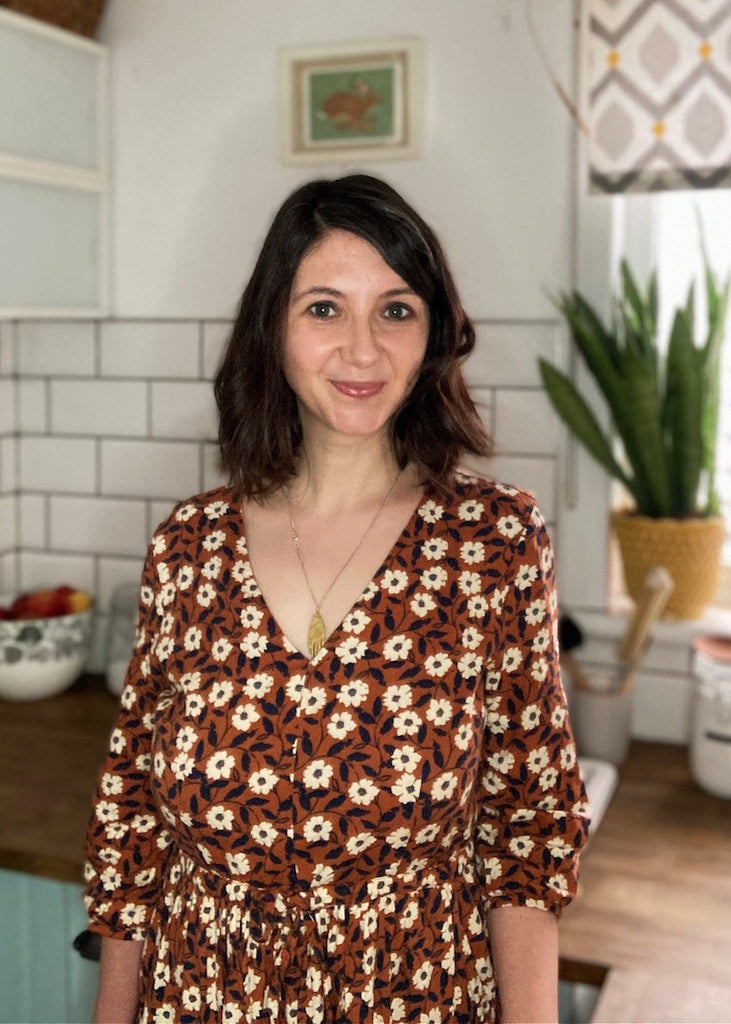We first came across Wendy Graham, sustainability expert and founder of the UK-based eco blog, Moral Fibres, when she kindly included our sheepskin Moccasins in her feature on ethical slippers.
Wendy’s aim is to make sustainability simple. Her website is for anyone who wants to make a difference - but doesn’t know where to begin and who needs help to navigate the confusing messaging out there.
We asked Wendy to break down the big ideas to give us some simple sustainable steps we can all follow - including our kids.

What are some easy ways we can become more sustainable at home?
Sustainability doesn’t always look the same for everyone. However, as a starter, I would suggest:
- Switch to an ethical bank - many High St brands fund the fossil fuel industry, so taking your money out of these institutions and using ethical banks can make a massive difference.
- In a similar vein, encourage your employer to switch to an ethical pension fund.
- Eat less meat and dairy products.
- Buy fewer things, and commit to making the things you already own last.
- Borrow items from friends, rather than buying new. Alternatively, join one of the many libraries of things that are popping up around the country, allowing you to borrow items, such as drills, hammers, even lawnmowers!

What are some simple ways we can encourage our children to be sustainable?
If you have kids, then it’s a great idea to talk to them about the environment from a young age. Easy ways to start include:
- Model sustainable behaviour - kids learn from your actions, so mending things that break, eating fewer meat-based meals, etc, all help shape your child’s world view.
- Get them involved in age-related tasks, such as sorting the recycling.
- Get your kids involved with local community efforts and projects - community litter picks and other family-friendly environmental activities are all great for kids to take part in.

What are the biggest misconceptions about being sustainable?
One of the biggest misconceptions is that you have to bin all of your belongings and buy sustainable ones in their place. It is absolutely not the case at all - the most sustainable items are the ones you already own. So, to take part in ethical fashion, for example, you don’t have to go and buy new clothes from ethical brands. All you have to do is keep wearing the clothes you already own, rather than buying new clothes, and look after them so that they last the distance.
What are the issues that people are most concerned about?
The Climate Emergency is the biggest issue, and quite rightly so, it is the biggest threat to our livelihoods. From increased storms, to increased risk of flooding, and to how that impacts us, is incredibly concerning. I’ve found that people are keen to learn how to help reduce greenhouse gas emissions through adopting a greener life.
People are also concerned about the ethics of how things are made. From the pay and working conditions of garment workers, to the materials that those items are made of - these are all considerations that people are increasingly concerned about.

Plastic-free doesn’t always mean better – what should we know?
Plastic reduction is a great entry point to sustainability. This is because plastic is a very visible reminder of our impact on the environment. However, a cotton bag has to be reused a staggering 131 times before it has a lower carbon footprint than a plastic bag. What this shows us is that we can’t just shop our way to sustainability. Consuming only what we need is probably the biggest thing we can do, in all aspects of life, to be more sustainable.
Read more at Moral Fibres website.
Sustainability at The Small Home
From our beautiful artisan products, made using the waste from another industry, to plastic-free recycled-paper packaging, sustainability is a core value of our brand. Here are our five favourite sustainable products from The Small Home.

Sheepskin Moccasin Slippers; made from 100% British sheepskin including the offcuts of Rolls Royce car interiors, so using the waste from another industry. Our sheepskins come from a reputable British supplier who has the highest animal welfare standards and only uses by-products of the meat industry.

Luxury bath rugs: these beautiful handwoven bath mats with their chunky knotted design feel so satisfying underfoot and come in an array of beautiful tones. Yet they are made entirely from the offcuts of the Portuguese garment industry - once again using waste from another industry. They also work wonderfully as small bedroom rugs.

Bud vase: handmade in Spain, using exclusively 100% recycled glass without any additives, these vases demonstrate that a high-quality product is perfectly possible using recycled glass. The recycling process of glass is a clear example of sustainability. The energy saved in recycling 3 bottles is sufficient to charge a smartphone battery for one year.

Wayuu bags: sustainability doesn’t have to be drab or boring! These Colombian handwoven bags are a riot of colour and detail, each individually handwoven by skilled Indigenous artisans. It can take up to two weeks to weave these unique Wayuu tote bags - they are true works of art.

Ethical homeware: such as our Geoffrey Fisher wooden brushes. These are entirely handmade using locally-sourced hardwoods that are coppiced as part of an ongoing program of traditional woodland management to maintain a healthy balance of native flora and fauna.



Leave a comment